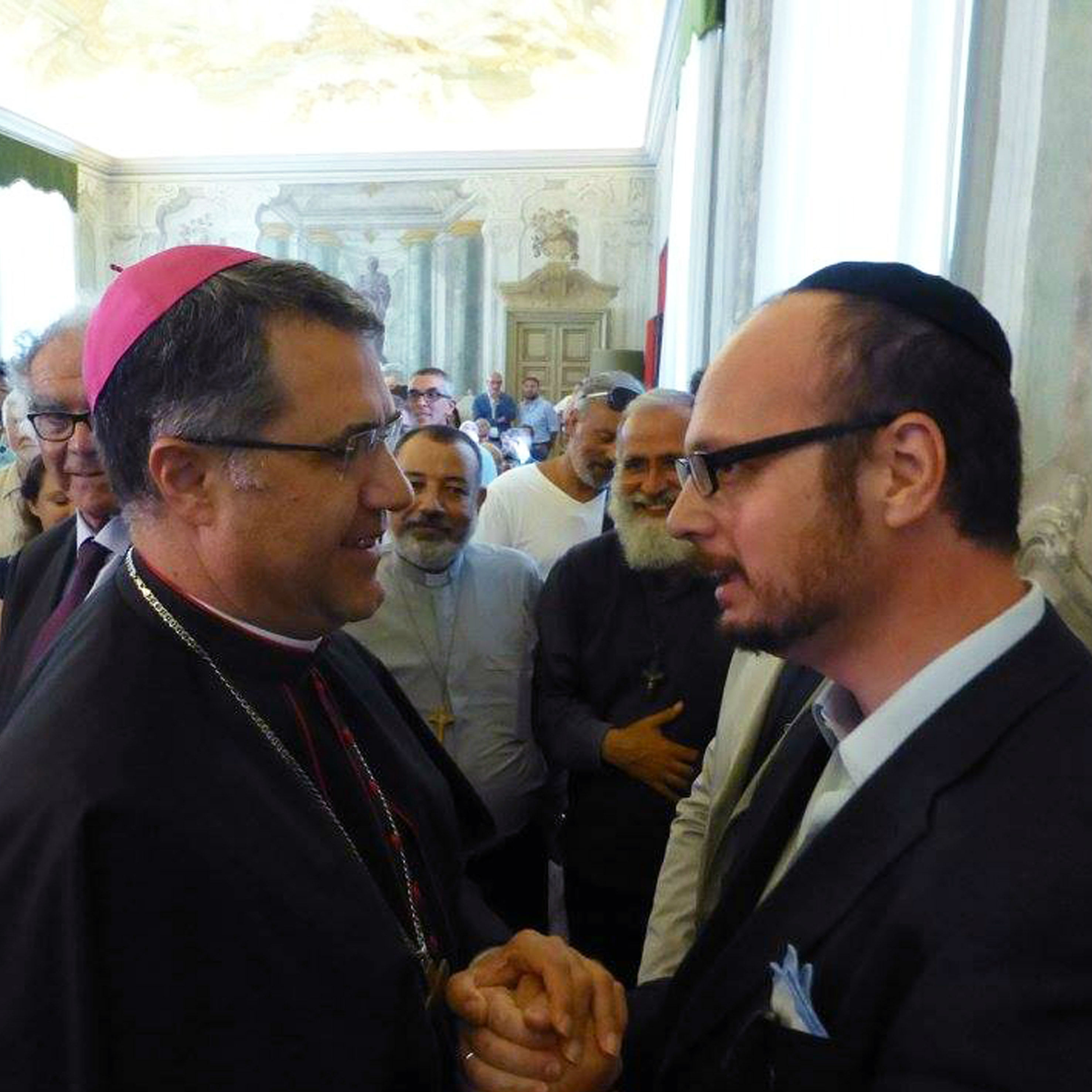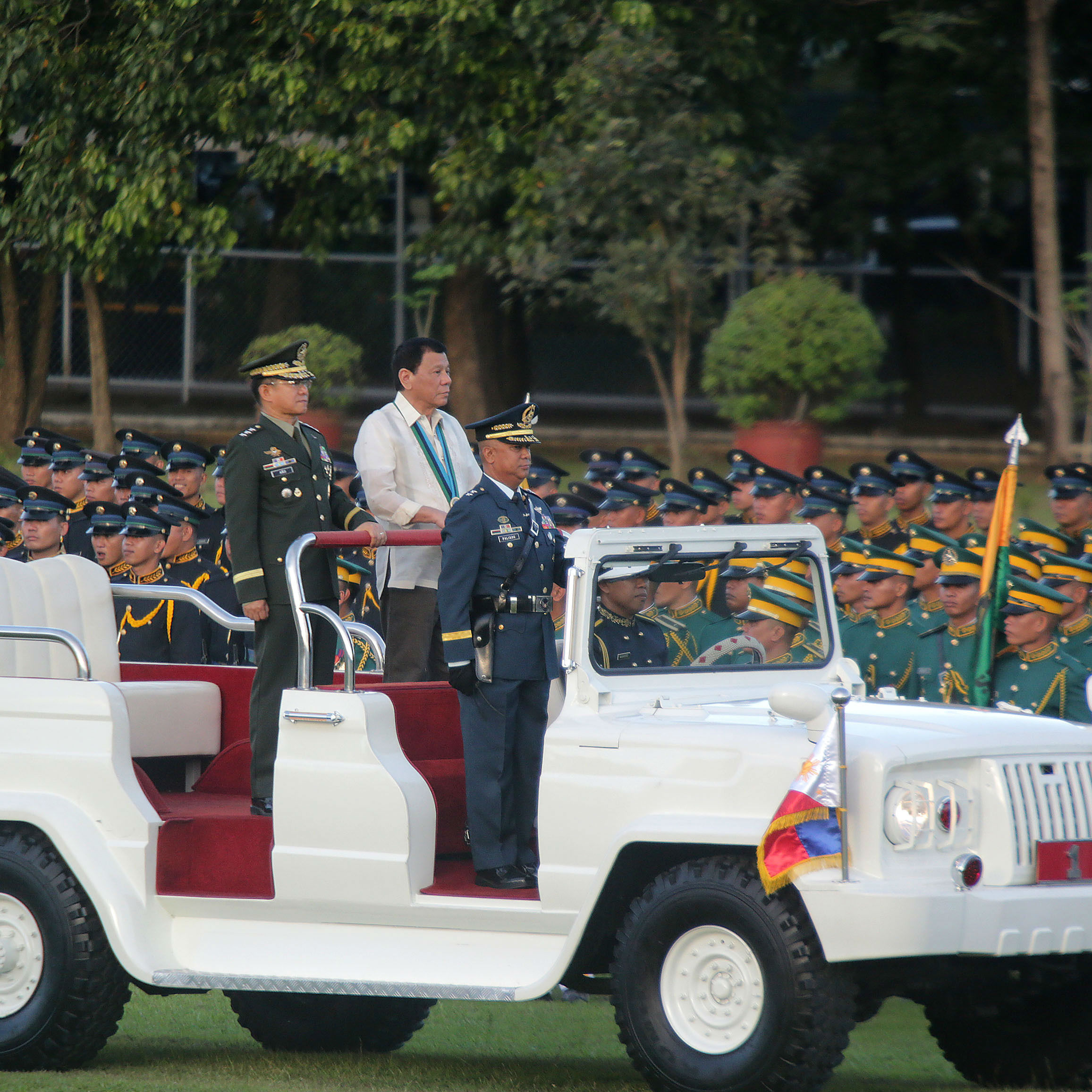Catholic bishops in the Philippines have called for public vigilance over proposals to amend the country’s constitution and the threat of martial law.
The bishops urged the protection of the current constitution, which safeguards against martial law, in a statement released at the close of their plenary assembly on 30 January.
“Let us continue to maintain the safeguards against dictatorial martial rule that our present Constitution contains,” wrote Archbishop Socrates Villegas, president of the Philippine Bishops’ Conference.
President Rodrigo Duterte has repeatedly said he would declare martial law if necessary to protect the nation.
He warned if the country’s drug problem deteriorated into “something really very virulent, I will declare martial law,” in a speech given to business leaders in Davao City, on 18 January.
“No one can stop me,” he added. “My country transcends everything else, even the limitations."
President Duterte said he needed to change the Constitutional provision that gives Congress and the Supreme Court the power to revoke or uphold a president's decision to declare martial law, during a speech given at Pampagna on January 11, CNN Philippines reported.
“If I declare martial law amid an invasion or war, I cannot proceed on and on, especially if there is unrest. I would need to go to Congress and to the Supreme Court,” he said. "Well, what happens if the Supreme Court says one thing and Congress says another - one says yes and the other says no? Where would you put me? That's why I really need to change it.”
Any changes to the country’s constitution should concern all Filipinos, the Bishops’ statement maintained.
“The process of amending the Constitution should not be left to politicians or to those who either by election or appointment will be tasked to draft the amendments. For the Constitution is not only a piece of paper, even though some who would disregard its provisions may claim that it is only that,” read the statement.
“The Constitution is the single most important document of our country,” the Bishops continued.
The provisions of the Constitution and all the proposed amendments should respect human rights, value the sanctity of family life, and promote the common good, they continued. They urged Catholics to get involved in the amending of the Constitution so that all its provisions will be consistent with the Gospel.
“Let us not fail our country. Even more importantly, let us not fail our Lord Jesus Christ. We, your pastors, on our part commit ourselves to the huge task of helping our people know our Constitution and the faith issues connected with it,” they wrote.
Human rights group, Amnesty International, has accused police in the Philippines of paying officers to kill alleged drug offenders, planting evidence and even setting up a racket with funeral homes in what they describe as a “murderous war on the poor”.
A wave of extrajudicial killings by police and the vigilantes they work with may amount to crimes against humanity, Amnesty said in a report published on 1 February.
More than 7,000 people have been killed since President Duterte began his controversial "war" on drugs last July.
Catholic leaders have condemned the killings.
“[The drug war] is not any more in accord with the legal processes, and the moral norms are being violated and so now is the time for the Church to speak up,” Jerome Secillano, public affairs chief for the Catholic Bishops Conference of the Philippines, told Agence France Presse (AFP) last week.
Over Christmas, Baclaran Catholic church in Manila held an exhibit of poster-size pictures of Filipinos dying in pools of blood in a statement against Duterte’s violent campaign. Other churches have put up banners denouncing the extrajudicial killings, while priests have helped to organise relatives of the slain into a watchdog group called Network Against Killings in the Philippines.
Over the coming weeks, the Church also plans to train widows and other female relatives of men killed in mainly slum communities to document the deaths so they can bring criminal charges against police, reported AFP.
In response, Duterte has furiously challenged the Church to a “showdown” and threatened to expose abuse and corruption in the Church. Duterte said during his election campaign that fighting crime and narcotics was his priority, promising to eradicate illicit drugs within six months.
PICTURE: Philippine President Rodrigo Duterte inspects soldiers from the Armed Forces of the Philippines (AFP) during the celebration of the 81st anniversary of the AFP on 21 December 2016.




 Loading ...
Loading ...